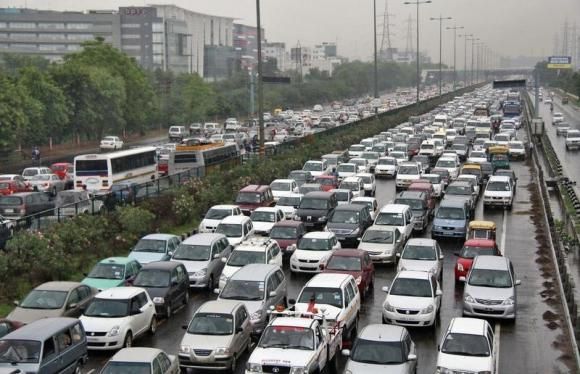 The union Budget 2015 has nothing much for the auto industry.
The union Budget 2015 has nothing much for the auto industry.
Budget Provisions
The GOI has announced to speed up the implementation of Goods and Service Tax (GST) that the auto industry had been demanding for quite a long time.
It will create a uniform tax structure across all states.
The govt said that the GST will come into effect from April 2016. Hike in basic customs duty on commercial vehicles from 10% to 40% and effective rate from 10% to 20%.
However, customs duty on commercial vehicles in Completely Knocked Down (CKD) kits and electrically operated vehicles including those in CKD condition will continue to be at 10%.
Reduced corporate tax (from 30% to 25%).
Budget 2015: Complete Coverage
Industry Expectation
- Reintroduce concessional excise duty on vehicles and auto components.
- Rationalise taxes on vehicles as currently automobiles have four excise rates.
- Remove National Calamity Contingent Duty on vehicles.
- Bring an incentive-based fleet modernisation plan to remove old, polluting vehicles.
- Subsume the following in GST to prevent cascading effect: road tax, octroi or its equivalent levy and R&D cess on tech import.
- Remove excise duty anomaly on motor having carrying capacity of 10 to 13 persons, including the driver, which currently face duty similar to that on luxury cars.
- Expand 150% weighted deduction for expenditure incurred in skill development to cover ITIs, diploma institutes and other institutes, including manufacturers' own training institutes.
- Reduce 2% CST to 1% as was proposed by government when the announcement for GST implementation was made.
- Incentives for replacement of old vehicles as this will help shorten replacement
- Clarity on implementation timeline of the Goods & Service Tax (GST) - GST will result in consolidation of multiple indirect tax levies such as Central Excise, Service tax, VAT and other levies such as NCCD, Auto cess, entry tax, octroi into itself. Budget 2015: Complete Coverage
- Various sops in terms of direct and indirect tax benefits that will increase disposable income of common people thereby boosting two/three wheeler and passenger car demand making them more affordable.
- A reduction in the bank rates will reduce vehicle loan costs. This could encourage customers to purchase vehicles, thus improving demand for the sector.
Budget Impact
There was no announcement for the automotive sector in specific. No revision announced in the Excise Duty slabs.
Moving to GST is expected to attract good investment in the sector and also create demand.
Reduction in corporate taxation is good news as the companies will have more money to invest. However, only worry is that it is still not clear as what would the quantum of cut as a five year time line has not been given.
But nothing was offered to give boost to R& D in the automotive sector. Increase in service tax cess on the petroleum products will also hurt the industry. There was no announcement to correct the inverted tax structure. Only Rs 75 crore allocated for electric vehicle manufacturing that is seen as a disappointment as the industry was expecting much more in this direction.
Commercial Vehicle:
Increase in custom duty on import of completely built unit of commercial vehicles will help the local manufacturers by stemming imports. SIAM had also demanded a hike in the custom duty.
Two/Three Wheelers:
Investments and reform in agriculture will help farmers make more money thus boosting demand for automobile products in the rural market. Specially this will help the two-wheeler industry.
Passenger Vehicle:
With GST implementation, there will be a upfront reduction in cost for automobiles between 7% to 17%. Mid-size sedans and luxury cars which are the most taxed vehicles will reap the biggest benefit of the GST. Moreover, fully imported cars will also become cheaper as custom duty in lieu of CVD and the Special Additional Duty will be subsumed in GST.
2 per cent additional surcharge on the super rich might have a little impact on sale of high end PC and UV s.
Stock to watch
M&M, TTM, MSIL, AL, HMCL, TVS
Outlook
The much-awaited first full-term budget of the current government is finally out, which attempts to address several issues, including a few raised by the Indian automobile players.
Additional excise duty on vehicles, speeding up the implementation of GST (Goods and Service Tax), lowering interest rates on vehicles, etc. were the primary demands raised by the Indian auto players. Save for the assurance of speeding up the implementation of GST, most demands raised by auto players were not addressed in the current budget.
With no change in excise duty structure which was much needed in this time of the auto industry and also with no much change in personal tax structure, the automobile industry has not been given much to cheer for in this budget. The overall recovery in this industry might take a few quarters more than anticipated before for this reason.











 © 2025
© 2025